Everybody seems to have “lists.”
It’s a popular publishing trend these days, and for good reason. As an essayist and former journo, I see itemizing as a convenient and effective writing device to accommodate today’s shorter attention spans, especially for those who rely on electronic devices to live and learn.
I have my personal favorites and bêtes noires. Frankly, most aren’t worth writing about. Nobody cares about my go-to hot wings or preferred Enlightenment philosophers.
But I had an idea and a topic I think everyone can relate to: Music … a list of my favorite vocalists — male voices, more specifically, American singers.
I chose to limit the project to native sons, otherwise the process of including global voices would be hopelessly unmanageable for my limbic system.
The list is entirely subjective — no grading scales or comparative discographies. These artists made a significant impact on me, either through their body of work or in a defining moment in my life (i.e. wedding song, etc.) Nostalgia and sentimentality also mattered as reminders of my youth, first love, sad times, reflective moments, and the best days of a good life.
There are two common threads: tonal quality and emotional expression. All of these vocalists resonated their artistry with passion … from Ray Charles’ soul-bending laments to Roy Orbison’s transcendent operatic falsetto. Jeff Buckley, Brad Delp and Israel "IZ" Kamakawiwoʻole first made their impression with a single recording.
Confession: I admit, I’m a 20th-century dinosaur. In deference to Bruno Mars, John Legend, Usher and other 21st-century male artists, I acknowledge their immense talents. I suppose in 20 years they will be on many Millennial lists.
But I am from the generation that introduced the world to bell bottoms, “The Pill,” Etch-A-Sketch, big hair and Star Wars (the original three). Rock and roll and R&B are the soundtracks of my life. That is also why artists like Frank Sinatra and Nat King Cole are not on my list.
My music was personal back then and is still relevant to me today, the living fossil.
Jeff Buckley
Jeff Buckley didn’t accrue a lengthy discography during his short life (he tragically drowned in 1997 at age 30). He released only one album — Grace — in 1994. A few compilation albums were released posthumously.
A New York-based session guitarist for almost a decade, Buckley forged his path in the early 90s by collaborating with fellow musician Gary Lucas to form the fledgling group Gods and Monsters.
But it was this solo performance (above) that captured me. Leonard Cohen’s iconic “Hallelujah” has been covered hundreds of times. Many of them are fantastic.
But Buckley’s rendering (above) is haunting, almost ethereal. Cohen’s lyrics to “Hallelujah” are esoteric and difficult to vocalize, yet Buckley’s angelic voice coupled with his sensitive phrasing is simply breathtaking. The story goes that he did it in one take.
I first saw this video 25 years ago, and it’s been with me ever since.
Harry Chapin
“And the cat's in the cradle and the silver spoon
Little boy blue and the man in the moon
’When you coming home, son?’ ‘I don't know when'
But we'll get together then, dad
We're gonna have a good time then’” — “Cats in the Cradle” (1974)
America has had so many great minstrels … Bob Dylan, Paul Simon, John Prine … but it’s hard to find a better storyteller than Harry Chapin. A Chapin show was like putting music to a Raymond Carver short story, or John Steinbeck novella. Lots of quirky characters and rich, colorful stories.
I saw Chapin perform twice, both times in a four-man ensemble that included himself, a cellist, an accompanying guitarist and the late great Donald (Duck) Dunn on bass. Between songs, Chapin’s jocular personality was on full display. He was engaging and friendly, usually setting the backstory for the next song. But when he performed, he was mesmerizing, bouncing between bright and airy (“Dreams Go By”) … funny (“30,000 Pounds of Bananas”) … retrospective (“Circle”) … and intense (“Taxi”).
But perhaps no other song hits as hard as “Cats in the Cradle,” a lament about an absentee father. This was not a childhood issue for me but it affected about a half-dozen of my buddies growing up. One roommate heard it and broke down crying.
Ray Charles
You haven’t fully lived until you hear Ray Charles sing “Georgia On My Mind.”
Perhaps in a gesture of sympathy and remorse, the Gods saw fit to replace the eyes that couldn’t see with a voice that expressed all the colors of the human spirit.
When Ray Charles sang, as anyone who saw him live would bear witness, he used his whole body for expression. Leaning back from the keyboard and rocking to and fro with that familiar sway, he would draw the audience in with every sigh, every howl … even the occasional “laugh” dripped with soul.
His stylings usually found his voice trailing the melody, be it blues, soul, jazz, country, gospel or R&B. That phrasing is just one of the many things that made him so special.
All of it combined made him “The Genius.”
No doubt, Ray Charles is on the Mount Rushmore of American music.
Brad Delp (Boston)
Brad Delp’s isolated vocals on “More Than a Feeling”
Probably the most “say, who?” on this list is Brad Delp. Recruited by founder and musical techno-wizard Tom Scholz, Delp was the first member of a faceless band that eventually became Boston in 1976.
“More Than a Feeling” is the first track on Boston’s eponymous debut album in 1976 (Epic Records). The song was five years in the making as Scholz — an engineering grad from MIT — mostly toiled away in a self-made studio in the basement of his apartment building. He played all of the instruments (except the base drum track), fashioned the arrangement, and used techno-gadgetry to engineer highly-compressed guitar signals, the “crunching” effect that would become known as the “Boston sound.”
Then he brought in Delp to lay down the vocals. Smart guy, Tom Scholz.
Embedded within the track’s intricate, multi-layered guitar parts is Delp’s astonishing vocal performance. Because the song is so melodically rich and punctuated by multi-layered guitar chords, at first listen it’s easy to miss Delp’s magic. His soft tenor sits perfectly within the instrumentation, then pitches upward and outward through the guitar leads, adding another overlay to the melody. All overdubbed harmonies match flawlessly.
Remember, these were the days of analog recording. No auto-tune or digital modulation.
It’s hard to underscore how great this performance is within the finished track, so I’ve included the above video with Delp’s isolated vocals. Listen to his lead-in to the first bridge (“I see my Maryann walking away …” 2:00 to 2:12), the third verse (“She slipped away…” 3:10 to 3:22), and the outro (from 3:55-on).
Phenomenal.
John Denver
I recognize all of the John Denver jabs, the “aw-shucks” persona, his Prince Valiant haircut and bottle-thick glasses, and compositions that ranged from the syrupy (“You Fill Up My Senses”) to the cringy clap-a-long (“Thank God I’m a Country Boy”).
But Good Lord, what a voice. That beautiful, pitch-perfect, crystal-clear-as-a-mountain-stream voice. God gave Denver a unique gift, and he made some heavenly music with it … Calypso (1975), Poems, Prayers and Promises (1971) and Rocky Mountain High (1972).
Don’t forget Denver wrote the iconic “Leavin’ on a Jet Plane” (1966), first made famous by the folk trio Peter, Paul and Mary, when he was 23 years old.
Art Garfunkle
From The Concert in Central Park (1981)
It is said that Art Garfunkel’s voice was as delicate as the finest Baccarat crystal and just as fragile. But it was that fragility that made him so special. Artie was blessed with the voice of an angel.
It isn’t easy to separate Artie from Paul Simon, as their voices will be forever conjoined … like their idols Don and Phil Everly, except not by blood.
But Artie was more than just a high-harmony. His voice floated above, around and through Paul’s, providing highly nuanced melodic blends to complement Simon’s lower tones. Yet his S&G solos were rare … “El cóndor pasa (If I Could),” “For Emily, Whenever I May Find Her” and “April Come She Will” come to mind.
But when Paul penned his tour-de-force “Bridge Over Troubled Water” he knew it had to be Artie. Artie owned it and delivered one of the greatest recorded vocal performances of the 20th century.
Marvin Gaye
Marvin Gaye's isolated vocals on “What’s Going On”
One of the most striking things about Marvin Gaye's voice was its raw emotion. He could convey a deep well of feelings, whether it be joy, passion, pain, or sorrow.
Gaye had a dazzling vocal range, allowing him to deliver powerful, soulful belting and tender, intimate crooning in the same song. The world around Gaye was changing, and his music reflected that. Albums like What's Going On (title track above) addressed social issues like war, poverty, and environmental destruction. His music became more introspective, with thoughtful lyrics and moodier soundscapes.
Marvin sang with authenticity and elegance. Songs like "Ain't That Peculiar" and "How Sweet It Is (To Be Loved by You)" have driving rhythms, playful melodies, and his signature silky vocals.
He was pretty great in duets, too, teaming with Motown greats Tammi Terrell (“Ain’t No Mountain High Enough”), Kim Weston and Mary Wells.
Israel "IZ" Kamakawiwoʻole
The “IZ” medley "Over the Rainbow/What a Wonderful World” is like listening to an infant’s joyous laugh, smelling night-blooming jasmine, or watching a sunset from the Na Pali coastline.
So simple. So sweet. So genuine. Listening to “Braddah IZ” strum the ukelele and sing along with his dewey-dreamer voice reminds us that there is so much beauty right before us but is never fully appreciated.
The track was released on his solo album Facing Future (Mountain Apple Company) in 1993 but was first recorded as a one-take demo in a Honolulu studio five years earlier.
It took a while for the world to hear IZ’s magic. But when it did, the world fell in love. The song has had 358 weeks on top of the World Digital Songs chart, making it the longest-leading No. 1 hit on any of the Billboard song charts.
Roy Orbison
“Crying” from “Roy Orbison and Friends, a Black and White Night”
If there’s a No. 1 among equals, it’s Roy Orbison.
Orbison’s vocal range is said to have covered six octaves, effortlessly moving from baritone to high falsetto in a pitch perfect sonic arc. Listen to any Orbison track … “Only the Lonely” … “In Dreams” … “It’s Over” … “Blue Bayou” … “You Got It” … or his collaborations with the Traveling Wilburys.
Then there’s “Oh, Pretty Woman.”
Mercy.
Perhaps there’s no other sample of his operatic greatness than this live performance of “Crying,” (above) from the Cinemax special Roy Orbison and Friends: A Black and White Night” (1988).
Those friends you see behind him include Bruce Springsteen, James Burton and Elvis Costello on guitars, Tom Waits on piano, with background singers J.D. Souther, Jackson Browne, k.d. lange, Bonnie Raitt and Jennifer Warnes.
They were in awe, too.
Elvis Presley
It’s Elvis. What can I say?
Early on, I thought Elvis was more of a cultural apotheosis than a consequential artist. He was the guy with the gyrating hips, great hair and bad movies. “Jailhouse Rock” was pretty cool. “Heartbreak Hotel” was bluesy and gritty.
But I was a child of the 60s and early 70s (born in 1955). By the time I was in high school, 50s music was already considered “Oldies.” I paid scant attention and wrote him off as an adulated icon from a bygone era.
Then in my 30s, I saw a PBS broadcast of Elvis’ Comeback Special originally aired on CBS in 1968. I realized he did more than rockabilly novelties and overly-produced power ballads. He recorded love songs … country … gospel … and R&B. It was all fantastic. The man I believed was a cultural curio and a product of glossy marketing was instead a profoundly talented musician with a transformative voice.
I was a late-comer, a born-again worshipper of “The King.”
“Can’t Help Falling in Love” (above) is on my favored playlist today. I know I’m not alone. The original studio recording posted above has 412 million views.
Also a fan of these voices: Smokey Robinson, Otis Redding, Al Green, Dan Fogelberg, Gregg Allman (Allman Brothers), Steve Perry (Journey), John Fogerty (CCR), David Crosby (CSN), Randy Meisner (The Eagles), Jesse Colin Young (Youngbloods), Trace Atkins, Chris Cornell (Soundgarden), Michael Stipe (R.E.M.), Levon Helm and Richard Manuel (The Band), Lou Gramm (Foreigner), and Bob Seger.
Your Turn
Now it’s your turn.
Do you have an all-time favorite male artist?
Which of their songs made an impact on you?
Is there any single performance that stands out above the rest?
###
Jim Geschke was inducted into the Marquis Who’s Who Registry in 2021.


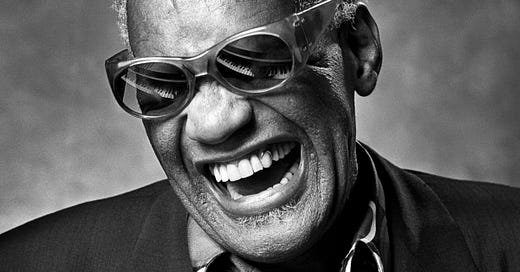



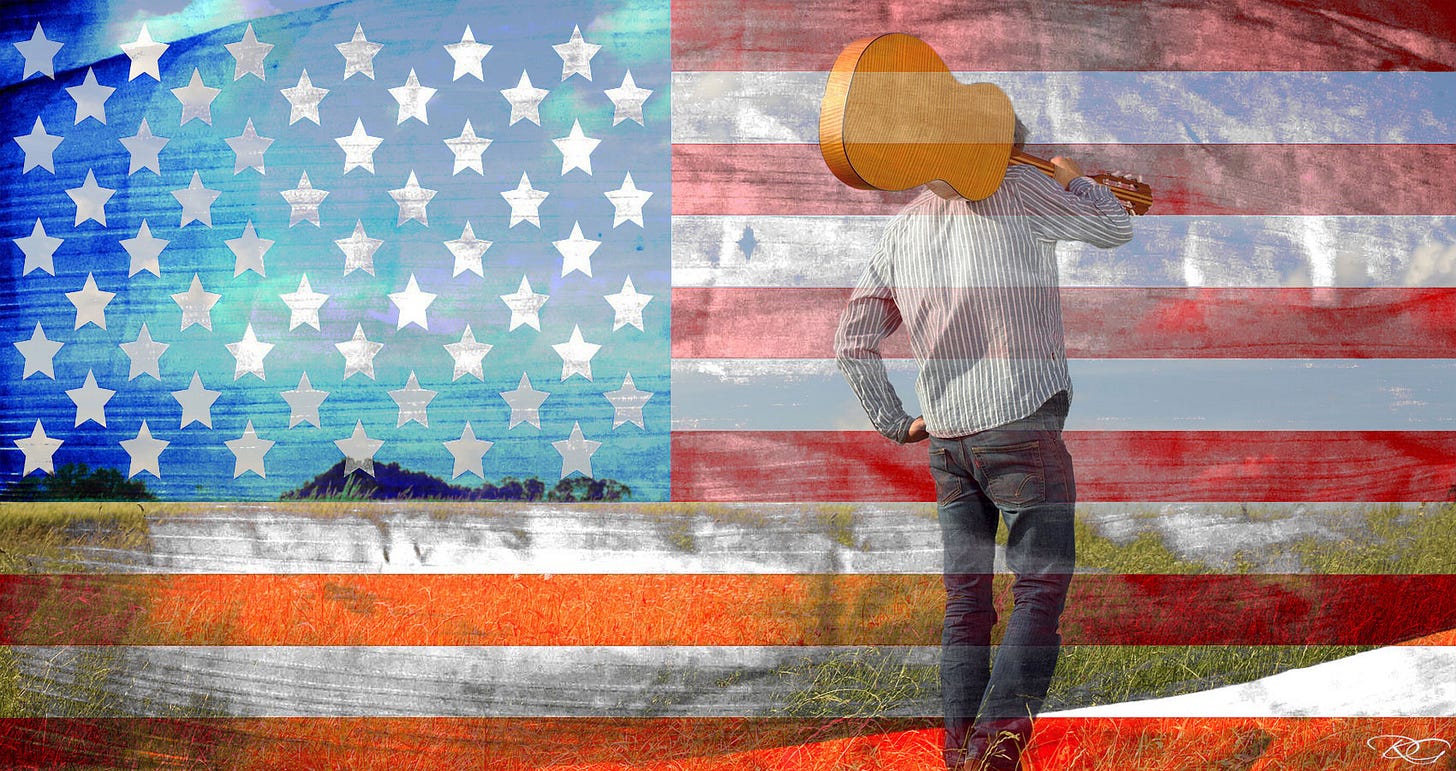
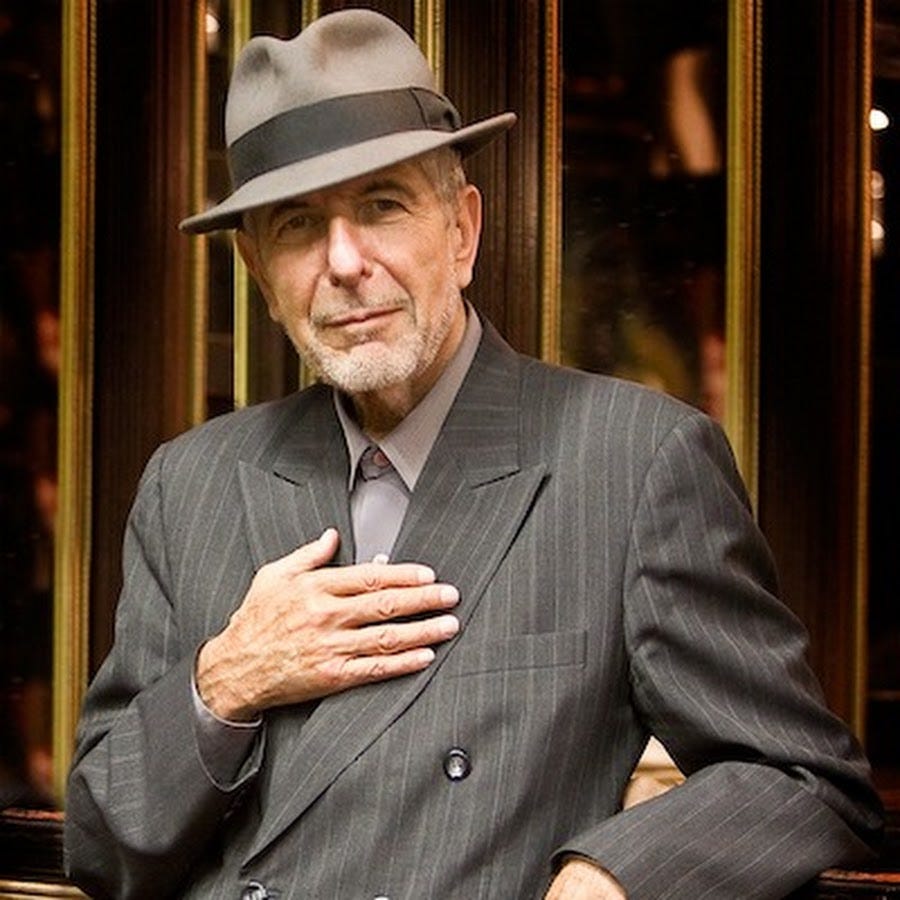
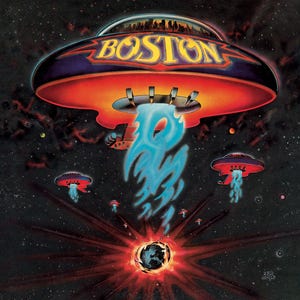
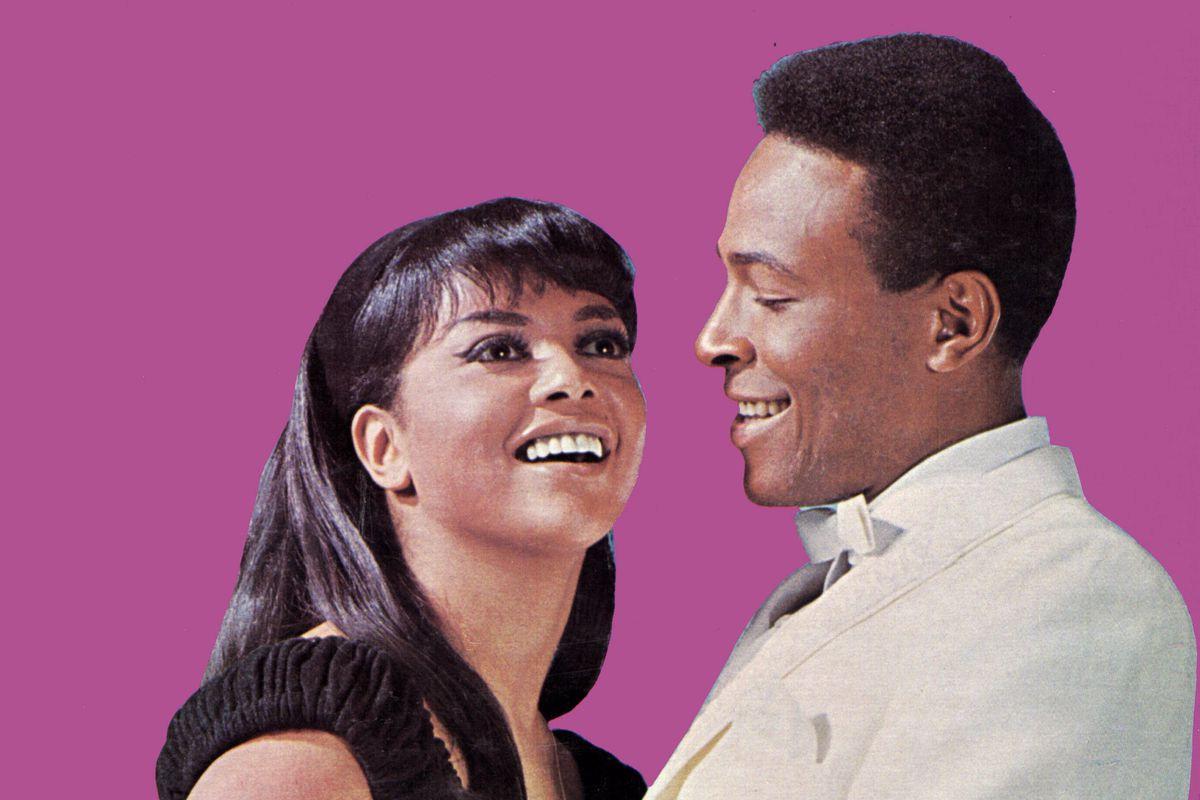
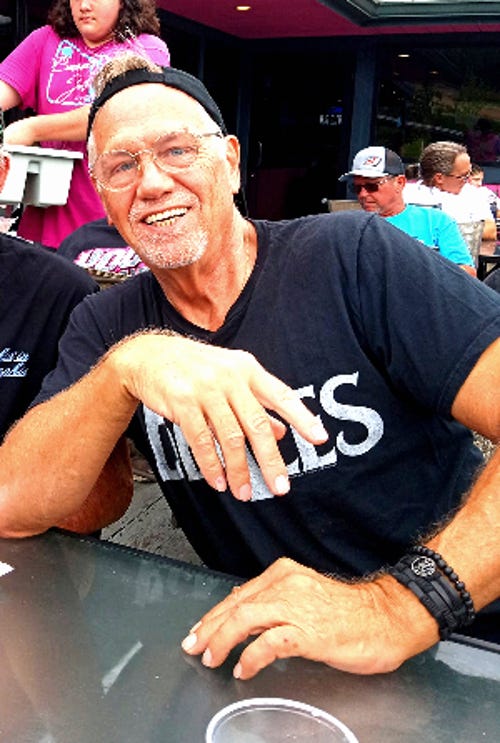
Good list , though it never occurred to me to do a ‘best British’ list (which it would be for me).
If I did, favourites would have to include Peter Gabriel, Van Morrison (Northern Ireland being British by current boundaries), Greg Lake and Robert Plant.
Hmmm, nay be showing my age here…
Great list, Jim! Agree with most.
My Faves:
American - Steven Tyler.
British - Freddie Mercury.
Canadian - Burton Cummings.✌️